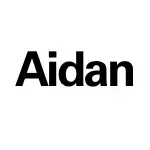

In one of my 300 level poli sci classes, literally one of the first things the professor said is that in politics, everyone running for office is a power-hungry narcissist. It’s only a slight exaggeration.
That type of person is at every level of politics. I’d wager that if you could get data on the real motivations of every person who has ever run for office, you’d probably see the same amount of those people at every level, from school board to president.










His tweet says it was his campaign and personal email, both of which are separate accounts from his house.gov email. But he probably uses his personal email for work